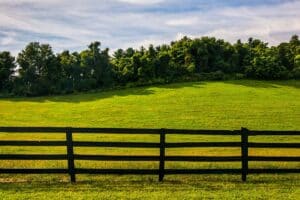Now that you’ve decided to sale your land and to use a land agent to help you market your property, you will usually need to meet with them at your tract. Here are a few things you can expect and plan for to make your meeting more beneficial.
1. Bring copies of documentation for your property. A listing agent will need a copy of the deed of record, a plat map, current survey, timber cruises, mineral or hunting leases, tax records, septic system permits, and other assorted documents which provide information about your property. Other items that may be helpful are harvest records of wildlife and pictures of game taken or observed, enlarged aerial maps of the property, timber stand maps, documentation about historical structures or occurrences on the land.
Recently I met with a landowner at his property, and he had already filled out a sheet with all of his contact information, age of the home, number of food plots and shooting houses on the property. He listed the names of all of the utility companies that serviced his land, the bank through which the land was financed, and several other helpful pieces of information. This was a pleasant surprise and has proven to be very helpful at recent showings.
2. Be prepared to show the property to the agent. It is helpful if the owner, who in many cases knows more about the land than anyone, can help the agent identify key areas of interest throughout the property, boundary lines, and information about the age of timber, etc… All of this allows the agent to have a better understanding of your property and will be able to present it well to prospective buyers.
3. Finalize the asking price and terms at which you are offering the land. A good agent will generally not give you a hard listing price over the phone, but may suggest some ranges of what land in your area is selling for. You can decide in advance whether you want to offer owner financing, retain mineral rights, reserve an easement if needed, and other issues such as these. The agent will provide you with an Estimated Net Sheet to provide an estimate of the amount you will walk away with after the completion of the transaction. I generally try to figure a “worst-case scenario” of closing costs on the net sheet to give a more realistic expectation of monies to be retained.
4. Keys to outbuildings, homes, and gates should be given to the agent at this time.
5. Sign the listing agreement. The listing agreement generally gives the brokerage company the exclusive right to sell and market your company. A land agent earns their money by marketing your property and bringing a buyer to suit your needs. The listing agreement gives the agent a reasonable expectation of being able to recoup the money he is going to invest in marketing your tract. The listing contract on land will generally be 6 months to 1 year, as land takes a little longer on average to sell than residential property.
Land brokerage companies will generally charge a commission fee of 4% to 10% depending on the size and sale price of the property. A discount broker may charge you less money, but the marketing of your land may suffer because the agent does not feel like they can afford to outlay much money on it. 10% seems a little steep, but on smaller parcels of rural land an agent may legitimately feel they need that much to make it worth their time. Commissions may be negotiable with the agent, so feel free to ask if they will move on the percentage. All of my personal listings are at the same percentage of commission because in order to provide the best service I cannot skimp on the quality of marketing, so that each property has the best opportunity to attract qualified buyers. Landowners can be sure they are getting my best deal and best effort on each property they list with me.
By preparing for the listing appointment and having helpful information ready for your agent, the land agent will be able to provide you with better service and potentially a quicker, more successful sale.
This content may not be used or reproduced in any manner whatsoever, in part or in whole, without written permission of LANDTHINK. Use of this content without permission is a violation of federal copyright law. The articles, posts, comments, opinions and information provided by LANDTHINK are for informational and research purposes only and DOES NOT substitute or coincide with the advice of an attorney, accountant, real estate broker or any other licensed real estate professional. LANDTHINK strongly advises visitors and readers to seek their own professional guidance and advice related to buying, investing in or selling real estate.









Add Comment